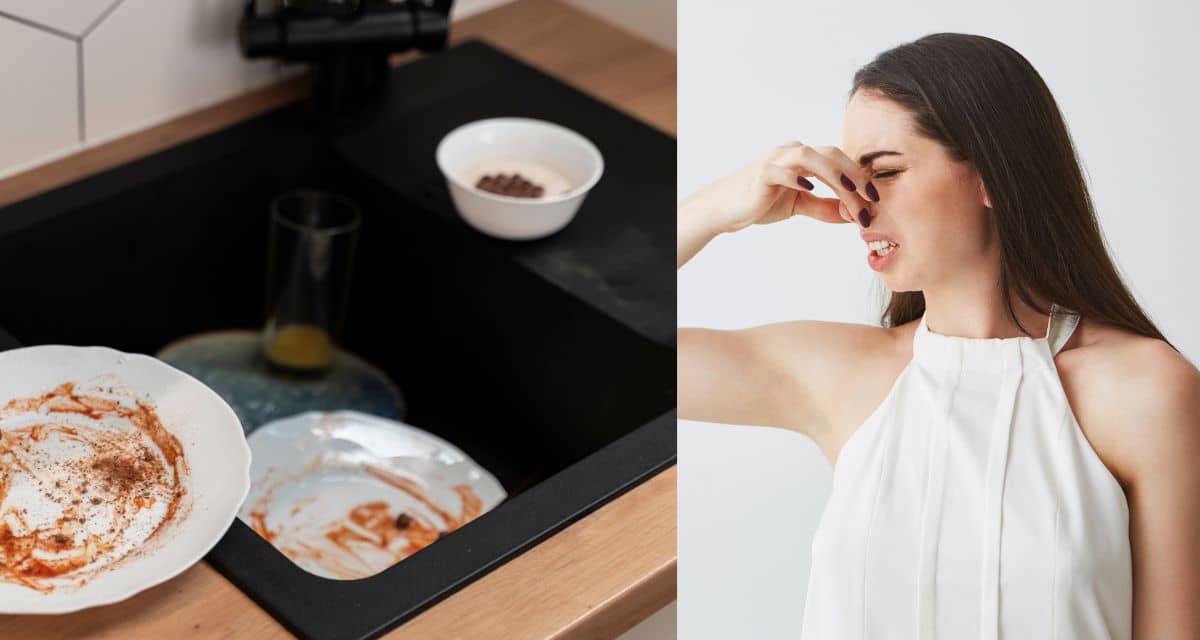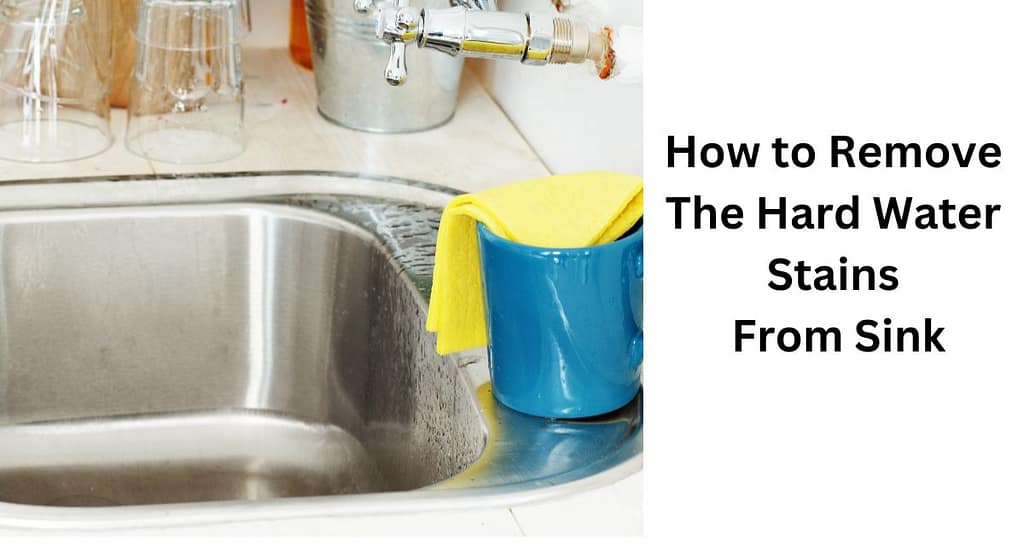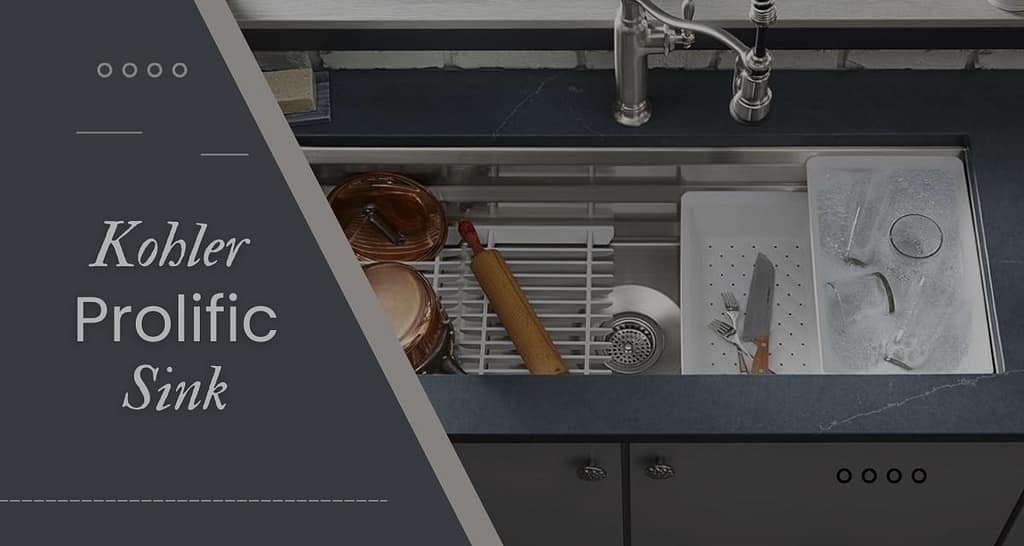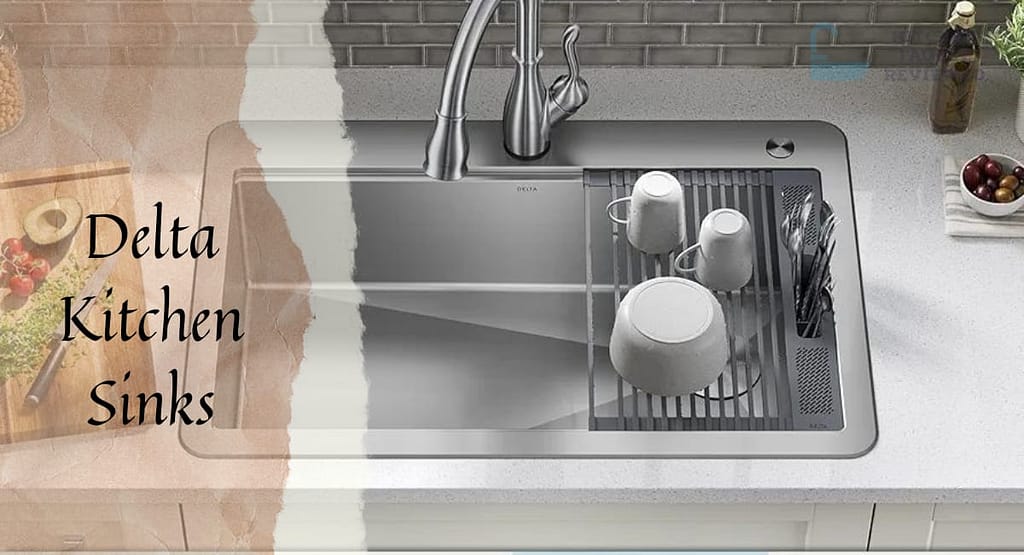Unpleasant odors emanating from the sink can quickly turn a fresh and inviting kitchen into a less-than-pleasant environment. These foul smells are often caused by a buildup of food debris, grease, bacteria, or even mold in your sink and pipes. Fortunately, there are several effective methods to eliminate these odors and restore a fresh and clean scent to your kitchen. In this article, we will explore various techniques and remedies to banish sink smells once and for all.
How Sink Smell No More in 2025?
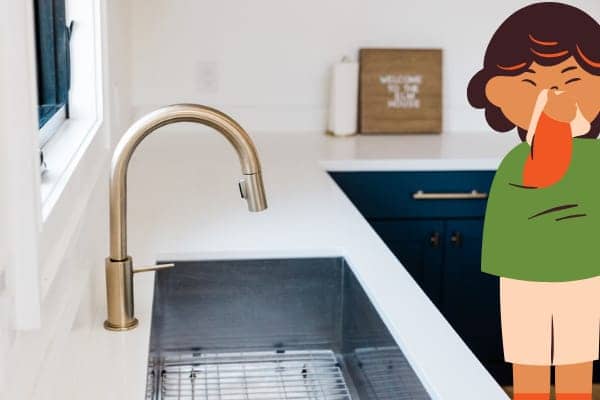
1. Regular Cleaning:
Regular cleaning is not only important for maintaining the aesthetic appeal of your kitchen or bathroom sink, but it also plays a crucial role in eliminating unpleasant odors. By implementing a consistent cleaning routine, you can ensure that your sink remains fresh and free from any foul smells.
To initiate the cleaning process, it is advisable to start by removing any visible debris or food particles that may have accumulated in the sink. This can be done using a sponge or scrub brush, which helps in dislodging and removing larger particles from the surface.
Once the visible debris has been cleared, it’s time to delve deeper into the cleaning process. Prepare a mixture of warm water and mild dish soap, ensuring that the soap is gentle enough not to damage the sink’s surface. This solution acts as an effective cleaning agent, capable of removing dirt, grease, and other organic substances.
Using the sponge or a soft cloth, thoroughly scrub the entire sink basin, paying attention to areas that are prone to buildup, such as around the drain and faucet. The scrubbing action helps to dislodge any embedded grime, while the soap breaks down the grease and organic matter, allowing them to be easily rinsed away.
While cleaning the basin, don’t forget to include the faucet and drain cover in your cleaning process. These areas can harbor bacteria and contribute to unpleasant odors if neglected. Ensure that you scrub these components as well to maintain overall cleanliness.
After thoroughly scrubbing the sink, rinse it with clean water. Make sure to remove all traces of soap residue to prevent any potential buildup. This step is crucial as soap residue can contribute to the formation of a film on the sink’s surface, making it more susceptible to odor-causing bacteria.
To complete the cleaning process, wipe the sink dry using a clean cloth or towel. This step helps to prevent the accumulation of moisture, which can create an environment conducive to the growth of bacteria and mold.
By adhering to a regular cleaning routine, you not only eliminate visible dirt and grime but also reduce the presence of odor-causing bacteria. This not only keeps your sink smelling fresh but also promotes a hygienic environment in your kitchen or bathroom. Regular cleaning also extends the lifespan of your sink, preventing the buildup of stains and mineral deposits that can be more challenging to remove over time.
Remember that prevention is key when it comes to maintaining a clean and odor-free sink. Avoid letting food scraps or other debris accumulate in the sink, as they can contribute to foul odors and clog the drain. Promptly clean up any spills or stains and consider using a sink strainer to catch larger particles before they enter the drain.
2. Baking Soda and Vinegar:
Baking soda and vinegar are a powerful combination for eliminating sink odors due to their natural cleaning properties. Baking soda, also known as sodium bicarbonate, is a mild alkali that helps to break down grime and neutralize odors.
Vinegar, on the other hand, is an acid that can effectively dissolve grease, kill bacteria, and remove unpleasant smells. When combined, baking soda and vinegar undergo a chemical reaction that produces carbon dioxide gas, which helps to dislodge debris and further break down dirt.
The process of using baking soda and vinegar to eliminate sink odors is simple and requires a few steps. Start by pouring about a cup of baking soda down the drain. Follow this by pouring a cup of white vinegar into the drain immediately.
To maximize the effectiveness of the reaction, cover the drain with a drain stopper or a cloth to trap the resulting foam. The foaming action helps to agitate the grime and remove any odor-causing substances.
Allow the mixture to work for approximately 15 minutes, giving it enough time to dissolve grime and neutralize odors. Finally, remove the cover and flush the drain with hot water to wash away the residue and leave your sink smelling fresh.
3. Lemon and Citrus:
Lemons and other citrus fruits are excellent natural odor eliminators due to their high acidity and pleasant fragrance. The natural acids found in lemons, such as citric acid, help to neutralize and eliminate unpleasant smells. The fragrance of citrus fruits also provides a refreshing scent that can mask any lingering odors in your sink and drain.
To use lemons or citrus fruits for odor elimination, you can try two different methods. First, cut a lemon into small wedges or slices and toss them into the garbage disposal or directly down the drain.
Turn on the disposal or pour hot water to help release the essential oils present in the lemon’s peel. These essential oils contain compounds that have antimicrobial properties and can effectively neutralize odors. The grinding action of the disposal or the hot water helps to release and distribute the oils throughout the drain, further enhancing their odor-fighting capabilities.
Alternatively, you can create a DIY citrus cleaner by infusing lemon or orange peels in vinegar for a few weeks. Start by collecting the peels from lemons or oranges and placing them in a jar. Fill the jar with vinegar, making sure the peels are fully submerged. Seal the jar and let it sit for a few weeks in a cool, dark place.
During this time, the vinegar will extract the natural oils and compounds from the peels, infusing the liquid with their cleaning and deodorizing properties. After a few weeks, strain the liquid, dilute it with water if desired, and use it as a cleaning solution to wipe down your sink and drain. The citrus-infused vinegar will help to eliminate odors and leave your sink smelling fresh and clean.
4. Salt and Ice:
The combination of salt and ice is a useful method for removing lingering odors from garbage disposals. The coarse texture of salt helps to scrub away debris and residue, while the ice cubes provide a cooling effect that can solidify any greasy or sticky substances, making them easier to dislodge. Additionally, the grinding action of the disposal against the salt and ice helps to clean the blades and remove any odor-causing particles that may be stuck.
To use salt and ice for odor elimination in a garbage disposal, start by pouring a cup of ice cubes into the disposal. Follow this by adding a handful of coarse salt. Turn on the disposal and let it run for a few seconds to allow the salt and ice to work together.
The ice will help to solidify any greasy or sticky substances, while the salt will scrub away debris and residue. Finish by running cold water down the drain for a few seconds to flush away any remaining debris and leave your garbage disposal smelling fresh.
5. Enzyme Cleaners:
If persistent odors continue to linger despite regular cleaning and natural remedies, enzyme cleaners can be an effective solution. Enzyme cleaners contain natural enzymes, such as protease, amylase, and lipase, which are capable of breaking down organic matter. These enzymes target and digest substances like food particles, grease, and other organic materials that may be causing the odor.
To use an enzyme cleaner for sink and drain odor elimination, follow the instructions provided on the cleaner’s packaging. Generally, you will need to apply the cleaner directly to the affected area, allowing it to sit for a specified amount of time to allow the enzymes to work.
After the recommended time has passed, flush the drain with water to remove any residue and eliminate the source of the odor. Enzyme cleaners are safe to use in sinks and drains and can effectively tackle stubborn odors by targeting the root cause of the problem.
6. Prevention Tips:
Preventing sink odors is crucial for maintaining a fresh and pleasant-smelling kitchen. Here are some well-researched preventative measures that can help keep your sink odor-free:
1. Use a sink strainer or stopper: Installing a sink strainer or stopper is an effective way to prevent food particles, debris, and other solid materials from entering the drain. These items act as a physical barrier, catching and trapping the substances that can cause odors. Empty the strainer or stopper regularly to remove the collected waste.
2. Avoid pouring grease or oil down the drain: Grease and oil should never be poured down the sink drain as they can solidify and accumulate inside the pipes. Over time, this can lead to clogs and unpleasant odors. Instead, allow grease and oil to cool and dispose of them in a sealed container or trash bag.
3. Run hot water down the drain: After each use of the sink, it is recommended to run hot water down the drain. Hot water helps to dissolve and flush away grease, oils, and other residues that may cling to the pipes. This simple practice can help keep the drain clean and prevent the buildup of odor-causing substances.
4. Clean the garbage disposal regularly: If your sink is equipped with a garbage disposal unit, it is important to clean it regularly to prevent odors. One effective method is to grind ice cubes in the disposal.
The ice helps to scrape away debris and residue from the blades and inner surfaces. Additionally, grinding citrus peels can leave a refreshing scent in the disposal. Another option is to create a mixture of baking soda and vinegar and pour it down the disposal. Allow it to sit for a few minutes before running cold water and turning on the disposal to rinse away any remaining residue.
It is worth noting that while these prevention tips can significantly reduce sink odors, they are not foolproof. Occasionally, odors may persist despite preventative measures, which may indicate underlying issues such as plumbing problems or sewer gas leaks.
If you consistently experience foul odors from your sink even after implementing preventive measures, it is advisable to consult a professional plumber to identify and address the root cause.
Conclusion
Unpleasant odors from the sink can quickly turn your kitchen into an unwelcome space. By implementing the tips mentioned above, you can effectively eliminate sink odors and create a fresh and inviting environment.
Remember to maintain a regular cleaning routine, utilize natural remedies like baking soda, vinegar, and citrus fruits, and consider enzyme cleaners if needed. With these methods and preventative measures, you can bid farewell to sink smells and enjoy a clean and pleasant kitchen for years to come.
Read our Recommended blogs:

